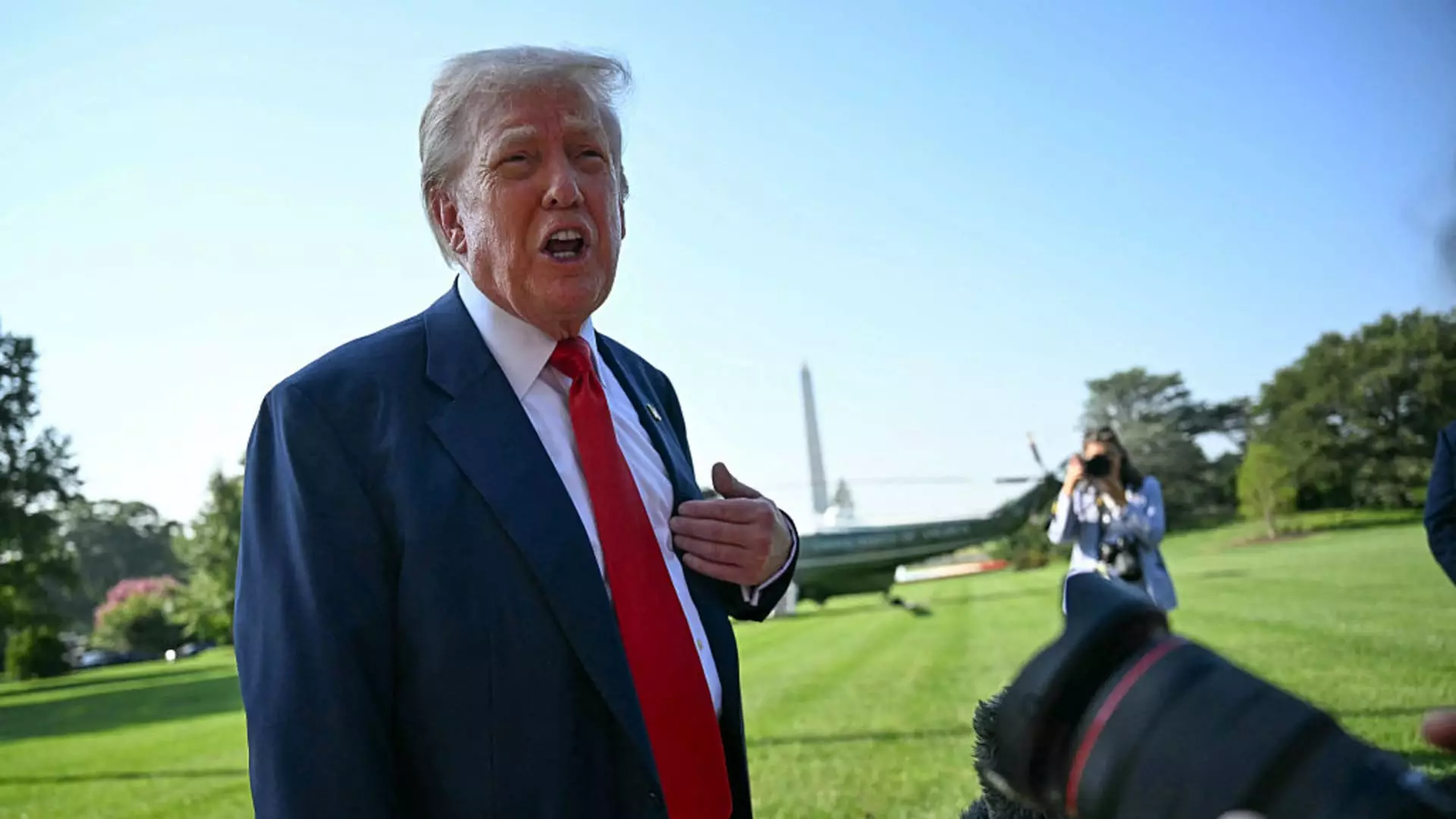The Jeffrey Epstein saga has long been painted as a sordid tale involving a depraved individual and a select circle of high-profile predators. Yet, beneath this surface lurks a deeper narrative—a complex interplay of political power, social influence, and strategic obfuscation. President Donald Trump’s recent comments and the unfolding investigations reveal more than just scandal; they expose a fragile veneer of innocence maintained by those with vested interests in controlling the narrative. It’s tempting to dismiss Trump’s disavowal of Epstein and Maxwell as mere denials, but such reactions serve as calculated attempts to shield certain allies and preserve political capital. The reality is that Epstein’s network was not isolated; it intertwined with elite power structures that extend far beyond criminal activity, revealing the uncomfortable truth that the political establishment often operates in murky, ethically compromised waters.
The focus on individual actors like Clinton or Harvard’s Larry Summers, as Trump emphasized, seems designed to divert scrutiny away from systemic issues. It’s a familiar strategy—highlighting peripheral figures to diffuse accountability from more significant political players who have the resources and influence to obscure the truth. While Trump claims ignorance or innocence, the clumsy public relations charade masks an underlying acknowledgment of the network’s proximity to core power centers. His suggestion that others “live with Jeffrey Epstein” rings hollow—these connections are rarely coincidental, and the careful framing of such relationships hints at a broader strategy to muddy the waters and avoid uncomfortable truths about complicity at the highest levels.
Furthermore, the controversy surrounding the handling of Epstein’s files underscores a disturbing trend: the refusal or inability of authorities to fully disclose the depth of the abuse network. The DOJ’s reluctance to unseal key documents—despite promises and public pressure—raises questions about transparency and accountability. It’s a stark reminder that the mechanisms of justice are often compromised by political expediency, with powerful insiders leveraging their influence to bury inconvenient truths. The unsealing of grand jury transcripts could threaten to unravel connections that implicate more influential figures, and that risk shields those in power from exposure. The apparent favoritism and strategic suppression point to a broader pattern of impunity for the elite, further eroding public trust.
Ghislaine Maxwell’s incarceration epitomizes this clandestine struggle for truth. Her legal team’s assertions of innocence and claims of mistreatment serve as a classic defense—one aimed at framing her as a scapegoat rather than a participant. Yet, her proximity to Epstein and the depth of her involvement suggest that her role was far more than peripheral. The narrative crafted by her legal team attempts to portray her as a martyr, but the question remains: how far does the ripple of her influence extend within the corridors of power? The fact that she is being interrogated for details about others in Epstein’s circle indicates that the investigation fearlessly aims to pierce the illusion of untouchability that those in elite circles often rely on.
The dynamics between law enforcement and political figures involved in this case reveal the fragile and often compromised state of justice in elite scandals. The participation of high-ranking officials like Todd Blanche—whose background as a defense lawyer for Trump—further complicates the picture. Their meetings with Maxwell carry the risk of perceived conflicts of interest, blurring the lines between justice and political strategy. These negotiations hint at an intricate game—one in which the truth is collateral damage, and the primary goal is containment. Maxwell’s claims of unfair treatment and her lawyer’s rhetoric of victimization serve to humanize her, but they also cleverly shift focus onto perceived injustice, diverting attention from her potentially deeper involvement.
Ultimately, the Epstein case is more than a story of individual depravity. It is a powerful lens through which to observe how the political system often becomes entangled in protecting its own, especially when the costs of uncovering uncomfortable truths threaten to destabilize the social order. The ongoing tug-of-war over revealing files and the strategic handling of Maxwell’s testimony exemplify a system that values preservation over transparency. This scandal, at its core, reveals a disturbing reality: accountability is often sacrificed at the altar of political convenience, leaving us to wonder how many layers of complicity remain hidden behind the closed doors of power.


Leave a Reply